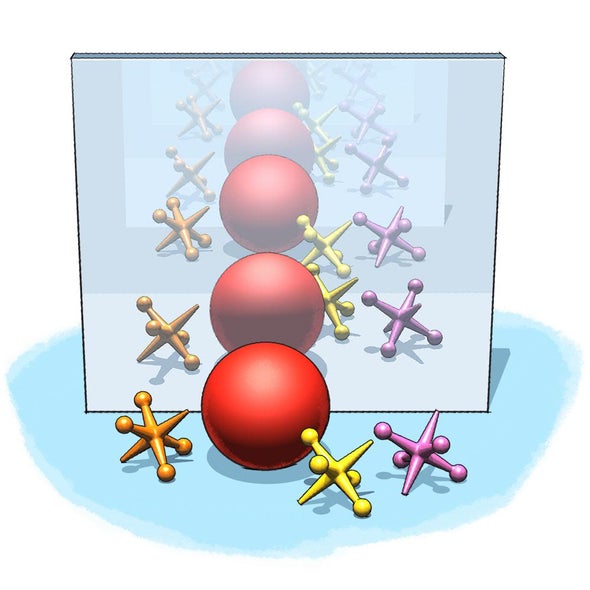 |
| November 19, 2021 |
 |
| |
| |
| |
| Sponsor Content Provided by AstraZeneca Meet the 2021 C2 Awards Honorees Redefining cancer care takes a community. The third annual Cancer Community Awards (or C2 Awards) celebrate the grassroots changemakers on the frontlines of cancer care. Meet this year’s honorees and learn more at YourCancer.org. | | | | |
| |
| |
| |
| Public Health How Do People Resist COVID Infections? Immune cells might abort SARS-CoV-2 infection, forestalling a positive PCR or antibody test, a study in hospital workers suggests | | By Max Kozlov,Nature magazine | | | |
| |
| |
| |
| |
| |
FROM THE STORE
 | | | |
| |
BRING SCIENCE HOME
 | | Can You Create an Infinite Number of Reflections? |  How many reflections can you make? With just a couple of mirrors--and the correct angles--you see (almost) forever. Learn how this optical trick works, and try it out at home! Credit: George Retseck | Can you imagine a bouncy ball that could bounce back and forth between two walls, infinitely—that is, forever? Wouldn't that be amazing? What if, instead of a ball, light was bouncing between two walls, which were both covered in mirrors? Do you think that could bounce back and forth forever? Imagine each light bounce added one reflection of an object in the mirror—for example, you! Would it look like there were an infinite number of "yous"? Perhaps you have noticed something like this in a fun house or a room with multiple mirrors. But can we create an infinite number of reflections? Try this activity, and be amazed by the many images mirrors can create! Before you know it, you might be inspired to create some real works of beauty. | |  | |
LATEST ISSUES
 |
| |
| Questions? Comments?  | |
| Download the Scientific American App |
| |
| |




